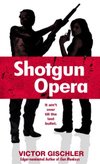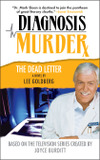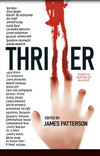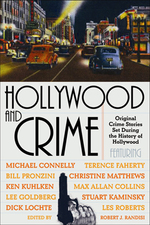
Here’s sneak peek at the rough cover for HOLLYWOOD AND CRIME, the new anthology edited by the prolific Robert Randisi (author of over 400 novels!). My contribution to this anthology, which comes out in February, is a short story entitled "Jack Webb’s Star." My friends Max Allan Collins, Stuart Kaminsky, Michael Connolly, Paul Guyot, Dick Lochte, Gary Phillips and Gar Haywood are just a few of the other authors who have contributed stories, all of which feature at least one scene at the corner of Hollywood & Vine (Les Roberts, whose name is featured on the rough cover, unfortunately has had to bow out).
Mystery Writing
Anthony Award Ballots
For those of you who, like me, are filling out your Bouchercon Anthony Award ballots and are trying to remember which books came out in 2005… here are two resources that will help: Cluelass lists all the 2005 Mystery releases and book critic David J. Montgomery shares some of his favorites for the top Anthony categories.
Writing Blind
Novelist John Connolly has an interesting post on researching his novels. But what intrigued me was this little nugget about how he writes:
I brought with me to the US the initial draft of The Unquiet.
I imagine it would be almost unintelligible to anyone who tried to read
it as a coherent narrative. My first draft tends to be a little rough.
There will be inconsistencies of dialogue and character. Some
characters will appear in the early stages only to disappear later,
their failure to manifest themselves once again left entirely
unexplained. Some things seem like good ideas at the start, but quickly
prove to be distractions from the main thrust of the book, and as soon
as that realisation hits me I tend to let those elements slide.I don’t fret too much about how untidy the text may be (although,
in my darker moments, I wonder what might happen if I didn’t live to
finish the book and someone else, for whatever reason, decided to piece
together whatever was left behind. I wish them luck. I mean, I’ve
written it, and sometimes even I’m not entirely sure that I always look
forward to trying to put all of the pieces together). After all,
there’s nobody looking over my shoulder, and my main aim is to get the
plot and characters from A-Z, even if that means bypassing Q and R
entirely, and occasionally having to loop back to P just to reassure
myself that I have a vague notion of what I’m doing.
I’m guessing that John doesn’t write with an outline. I know a number of authors who write the same way he seems to…just going where ever the inspiration takes him. I’m not going to knock it because clearly it’s worked great for him. But I don’t think I could ever write that way. That doesn’t mean that I stick religiously to my outline, or that characters don’t come and go (I’ve had characters who were meant to die in Chapter One that I kept alive through the whole book), but I need it to keep me more or less pointed in the right direction. I would find writing a book, particularly a mystery, very difficult to do on-the-fly.
Are Tie-Ins Hack Work?
Author J. Steven York talks on his blog today about the widely held notion that anybody who writes a tie-in is a hack. Among his observations:
We’re used to being dissed, even sometimes by our fellow writers. It
was exactly that situation that lead to the recent formation of the International Association of Media Tie-in Writers,
an organization created to promote and honor the writers engaged in
this challenging and under-appreciated area of publishing.Though I’m a member, I’ll be honest that I don’t know why it’s
necessary. Those of us in the business know the score, and I really
don’t care what the world-at-large thinks. My goal is to entertain my
readers with the best book I can produce, and enjoy myself in the
process.[…] most tie-in fiction is produced under battlefield conditions. No
waiting for the muse. No excuses (or none that your editor is likely to
care about). No delivering a book radically different from the one you
promised. It needs to be done. It needs to be done on deadline. It
needs to be done to specification. It needs to fit the package we’re
prepared to market. Does that hurt the quality of tie-in works? Sometimes, but less so than you’d think.
Sure, there are some lousy tie-ins and novelizations out there. But I’d say the ratio of good to lousy writing is about the same as you’ll find in popular fiction in general.
I look at tie-in writers as the literary equivalent of freelance writers on TV series. Every series uses freelancers but nobody inside or outside of the entertainment industry considers those writers hacks. That’s because freelancers are well-regarded showrunners between gigs or up-and-coming new writers contributing to a successful, on-going franchise. The same is true of tie-in writers.
If you look at some of the folks writing tie-ins, they include some of the most honored mystery writers in the field today (Max Allan Collins, Thomas Cook, and MWA Grandmaster Stuart Kaminsky come to mind). But, as J. Steven York point out, everybody has to pay the bills and, for some reason, that’s looked at as disgraceful in some writing circles.
I never fail to be amazed at the surreal and romantic notions that
people have about writers, publishing and "literature" (however you
want to define that last term). Publishing is a business, and it’s been "industrial" since the invention of movable type and/or the printing press.I don’t really know where the notion came from of the lonely, alcoholic
writer starving for their art, chiseling their masterpieces word by
painful word, stuffing the pages in a drawer for posterity.Fact is, its very difficult to find a writer who doesn’t at least aspire to
"pay the bills" through their works, even if that means publishing in
obscure literary magazines to support a academic career, or taking to
the lecture circuit to speak to the legions of people who would like to
pretend to have read your work.[…] Sell
more, sell better, write more, spend less time flipping burgers. It’s a
pretty simple formula that’s worked for a very long time. If you love
to write, you hope to sell.
The IAMTW was formed to celebrate the work of tie-in writers and educate people about who we are and what we do. We hope the 2006 Scribe Awards, honoring excellence in the tie-in field, will bring some positive attention to the writers of these bestselling — but underappreciated — works.
UPDATE 5-28-06: Author Keith R.A. DeCandido jumps into the fray:
The truth is that artists have always worked for money, just like
everyone else. The successful artists are the ones who had wealthy
patrons. The reason why art flourished in the middle ages is because
lots of wealthy people wanted art in their homes and it was considered
a noble profession — but it’s not like they were all independently
wealthy.Yes, we’re hacks. And we’ve always been hacks. Get over it.
Publisher Gets Into TV Biz
The New York Times reports that Harper Collins is teaming up with fellow News Corp. company 20th Century Fox to develop TV series based on their books. First up is a series based on Lisa Scottoline’s legal thrillers and another inspired by Elizabeth’s Noble’s THE READING GROUP, which follows a year in the life of a
women’s book group "whose members begin
to see their lives mirrored in the works they
discuss." The studio has hired Karen Glass, a former vp at Buena
Vista Productions, to work in the HarperCollins’ NY offices to sniff out projects on their book list.
(Thanks to Buzz, Balls and Hype for the heads-up)
Immortalized

I’ve been immortalized as a hitman in Victor Gischler’s new book SHOTGUN OPERA:
He was born Lee Goldberg in Sydney, Australia, but it had been many years since anyone had called him by that name. His stage name was Jack Sprat. He changed it after meeting the Fat Lady during a boardwalk carnival act in Atlantic City. Mavis was big and soft and beautiful, and Goldberg — now Sprat — fell in love.
They were married three months later and the stage names were a no-brainer. Jack Sprat was five feet five inches tall, all spindly hard muscle and sinew, a bald head and a big nose that gave him the appearance of a vulture.
He’s got my manly nose and sinewy bod down right, but the rest isn’t quite accurate. I’ve
returned the favor in my new book THE DEAD LETTER, where Victor shows up as a hitman, too:
Victor Gischler, known as The Do-er to the underworld of gun monkeys and the casual readers of the classifieds in Soldier of Fortune magazine, drove his growling ’68 Mercury Cougar up to the Monterey Bay
area from his home-base in Fontana, California, where he liked to hang out with his fellow members of the John Birch society, the Aryan Brotherhood, and the Boy Scouts of America.
[…] he’d show them both the glorious American eagle tattooed on his belly, its talons clinging to his hairy navel, and they’d be overcome by patriotism and lust. They might even fight with each other over who got to have him first.
I haven’t seen Victor’s belly but if he doesn’t have an American eagle tattooed on it, he should get one.
A Brouhaha In Any Language
Novelist John Connolly disagrees with the Crime Writers Association’s decision to disqualify "translated" crime novels from competing for the Silver Dagger, the UK equivalent of the MWA’s Edgar:
To those of us with a slightly cynical bent, it seemed that the main
reason why this decision was made was because translated novels have
been doing rather well in the Daggers in recent years, and ruffling
some feathers in the process. After all, it’s hard enough to win a
Dagger without Johnny Foreigner coming along and spoiling the party.
Lots of nice British and American authors, who speak and write proper
English, would rather like a dagger for themselves, not to mention the
whopping £20,000 cheque that will find its way into the pocket of the
victor in 2006.
He also takes a swipe at fellow crime writer Val McDermid’s stance in support of excluding translations:
Val McDermid – usually a fairly sensible type – offered her support for
exclusion by pointing out that if Peter Hoeg’s rather wonderful Miss Smilla’s Feeling For Snow had been read in its American version rather than its English version, then it might not have seemed so wonderful after all.
Now there really are only three appropriate responses to this. The
first is “Huh?” The second is to enquire just where exactly she
acquired her degree in comparative literature. The third, meanwhile, is
to wonder exactly how much Danish she speaks and reads to enable her to
make this kind of judgement. Curiously, McDermid was also one of those
who provided approving quotes for Silence of the Grave.
She described it as “a fascinating window on an unfamiliar world”,
albeit the type of window that she and her colleagues were apparently
happy to see closed in order to facilitate the future marginalisation
of foreign authors.
I think it’s incredibly wrong-headed of the CWA to exclude translated works from award consideration. The Mystery Writers of America and even the Los Angeles Times Book Prizes regularly honor works of crime fiction from other countries that are published in English in the U.S. The CWA’s literary xenophobia doesn’t reflect well on their organization or the Silver Daggers.
Thrilling THRILLER Thrillsite

The International Thriller Writers have launched a slick web page touting their acclaimed THRILLER short story anthology, which features stories by the biggest names in thriller fiction. On the Thriller Thrillsite, you can listen to one free story each week…from writers like Alex Kava, Denise Hamilton, Lee Child, Heather Graham, Gregg Hurwitz, Gayle Lynds, Raelynn Hillhouse, David Morrell, Brad Thor, and James Rollins. You can even enter to win a copy of the book signed by all the contributors. What are you waiting for?
Paperback Mystery Blog
Chicago Tribune book critic Dick Adler is launching a blog to handle all the mystery & thriller paperback reviews he doesn’t have room to print in his regular column. He kicks things off with reviews of James Swain’s DEADMAN’S POKER, Victor Gischler’s SHOTGUN OPERA and a collection of Julian Symon’s stories.
Manuscript from Hell
Novelist PJ Parrish agreed to read a manuscript as a favor to a friend of a friend. The book is awful and there are a few things she’d like to say to the author:
Get out, now, buddy. Get out of any notion that you could possibly ever
succeed as a writer. Because you are tone-deaf to dialog, blind to
characterization, and utterly and completely unable to tell a basic
linear-plot story. Worse, you didn’t bother to learn a damn thing about
the craft that goes into fiction writing before you tried. You had the brass balls to think you could shortcut all that.God, this just rots my socks, this whole idea that anyone can just
write a novel these days. I have had it with professionals who write
and think that just because their printer spat out 200 double-spaced
pages of typing, they have made the leap to professional writer.
But instead of saying that, she simply told the author she was too busy to read his manuscript after all. I’ve done that, too.
It’s even trickier when you’re asked to blurb a book… and you start reading and discover, for whatever reason, that you just don’t like it. That’s happened to me a few times over the years. In that situation, I politely decline to offer a blurb, saying something like "this book just wasn’t my kind of thing" or something else vague and non-judgemental. Only a handful of authors whose work I read and declined to blurb have pressed me for specifics. And when they do, I give them the reasons I didn’t like their book — but I resent being put in such an awkward position (ie trying to be honest without hurting their feelings) simply because I did them a favor. It’s a no-win situation for me and they should know that.


